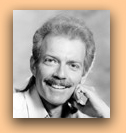
PROBE
Watermelon and Chocolate,
a Brief Chat with Charles Harper Webb
Interview by Jarret
Keene
If you're accepted into any creative writing program in the country, chances are you'll encounter the poems of Charles Harper Webb in anthologies, books, and "first-tier" literary magazines. His 1999 book, Liver (University of Wisconsin), remains -- for all intents and purposes -- required reading for young, aspiring writers. His gift for satire and heartbreaking insight puts him at the forefront of contemporary American poetry.
I recently had the good fortune to speak with Webb, who was in Las Vegas to give a reading sponsored by Red Rock Review, the literary journal of the Community College of Southern Nevada.
Webb was born in Philadelphia and grew up in Houston, Texas, where he learned to hunt, fish, play baseball, and pick guitar and graduated from Rice University. He worked for 15 years as a professional rock singer/guitarist and is now a licensed psychotherapist as well as a professor of English at California State University, Long Beach. He is the author of five books of poetry, including Liver, which won the 1999 Felix Pollak Prize, and Reading the Water (Northeastern University), which won the S. F. Morse Poetry Prize and the Kate Tufts Discovery Award. His poems have appeared in many journals and anthologies, including Best American Poetry, Paris Review and The Pushcart Prize. He is the editor of Stand Up Poetry: An Expanded Anthology (University of Iowa), co-editor of Grand Passion: The Poets of Los Angeles and Beyond (Los Angeles Poetry Festival), and a recipient of a fellowship from the John Simon Guggenheim Foundation. His most recent book is Tulip Farms and Leper Colonies (BOA, 2001).
Jarret: Tulip Farms and Leper Colonies is a collection of poems that seems to respond to the work of other funny, brilliant writers like Gaylord Brewer, Denise Duhamel, Ron Koertge, and William Trowbridge. Is it fair to characterize the five of you as comprising some kind of literary movement?
CHW: All four
writers that you mention are friends of mine. Ron Koertge has been a close
friend for many years. As to a "movement," all three are included
in Stand Up Poetry: An Expanded Anthology, which I edited for University
of Iowa Press, so you could call all of us "stand up poets,"
though stand up poetry is not an official movement, nor do we all write
stand up poems all the time. I certainly don't. I think it's fair to say
that we all use humor to serious effect, and sometimes {since we all like
to laugh) just to be funny.
Jarret: How much
do you feel your work analyzes or deconstructs American pop culture?
CHW: I write
out of a simultaneous love for, amusement at, and disgust with American
pop culture. I don't consciously try to analyze or deconstruct it, but
I think both things do happen in my work. As various theorists like to
point out, texts deconstruct themselves whether the author {living or
dead) tries to do so or not.
Jarret: Your poem
"A Girl's Best Friend." What would Marilyn Monroe make of it?
CHW: I don't
know enough about the "real" Marilyn to know what she'd make
of it. Your question provoked a pleasant fantasy of meeting her in her
prime. "Oh Charles," she says in that great voice of hers, "I
love your diamonds poem. Could you come over tonight and discuss it with
me?"
Jarret: Your poem "Viking" causes me to pine for those Sunday afternoons, when B-movie horror hosts puttered between junk-food commercials and segments of The Norsemen. What was the impetus behind this poem?
CHW: I, too,
loved those movies and those afternoons. And I really did love to play
Viking. Vikings seemed much cooler than cowboys or G.I. Joe-cool ships
and weapons and costumes, amazing gods and those Scandinavian women. The
poem owes a debt to Kurt Douglas' "The Viking," but some details
are different, so I invented a different movie in the poem.
